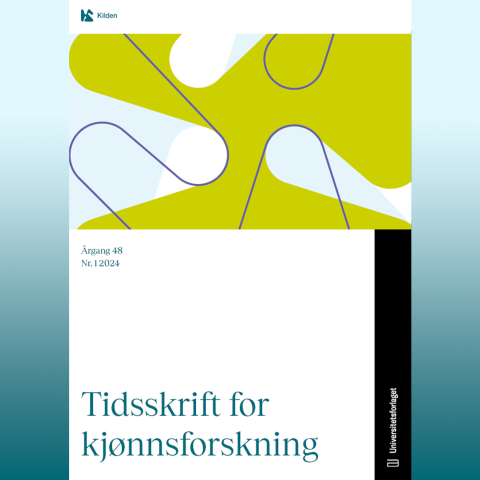The Journal of Gender Research: Open issue

The first issue of this year presents two articles and a book review that are showcasing knowledge from different geographical points of view, ranging from the situation of LGBTQ+ individuals as a minority in the Faroe Islands to women's citizenship in Arab states and the emergence of anti-liberal politics in Hungary. In addition, this issue includes an article that explores collective strategies for feminist knowledge production.
DOI: 10.18261/issn.1891-1781
Abstracts
The Invisible Undercurrent
Migration and belonging among LGBT+ minorities in the Faroe Islands
By Firouz Gaini
This article presents an exploration and analysis of LGBT+ minorities’ position in the Faroe Islands, a Nordic Atlantic society, from the 1940s until today. The Faroe Islands is sometimes categorized as a Nordic ‘exception’ in societal debate about minority rights and gender equality policy. How can we explain this image of being an ‘exception’ among Nordic neighbours? The aim of this article is first and foremost to present a critical discussion on LGBT+ minorities’ migration between the Faroe Islands and Denmark (with Copenhagen as the main centre for the Faroese Diaspora), based on a theoretical approach combining knowledge and concepts from interdisciplinary gender and island studies. The article contributes to a more nuanced understanding of the social positions and cultural strategies of sexual minorities from relatively small and remote island communities in transition. It draws on four biographical interviews and a large amount of information from Faroese media productions: newspapers, journals, documentaries, and so on. The article forms part of the author’s comprehensive anthropological research from the Faroe Islands, which has contributed with knowledge on identity, gender/masculinity and social transformations in island communities.
Keywords: Migration, island communities, LGBT+, sexuality, gender identities, rights, religion
Women’s access to divorce in Arab states 1956–2021: Family law, state formation and widened citizenship
By Rania Maktabi
Collective analysis of immigration policy: Feminist research methods in practice
By Helga Eggebø and Anne Balke Staver
In this article, we take a cue from the concept of “slow research” to explore how to work with critical thinking and collective methods in our own research practice. Our case is a 2022 analysis workshop, inspired by Collective Qualitative Analysis (CQA) (Eggebø 2020a) and the “What is the problem represented to be?” approach (WPR) (Bacchi and Goodwin 2016). A five-person project team took part in the workshop and helped analyse immigration policy documents. We describe how we carried out the analysis and discuss the experience in light of lessons from the literature on collective qualitative methods. We conclude that, in our case, the combination of the procedures of CQA and WPR was a useful way to advance and integrate the project. But the most important benefit of collective approaches is that they can open space for creativity and critical thinking. The concreteness of the CQA and WPR approaches, coupled with good process management, can scaffold a safe space for imagination and creativity. At the same time, we argue that it is possible to create good group processes with different methodological and theoretical approaches, and that the development of collective ways of working in academia is an ongoing practice we encourage students and researchers to take part in.
Keywords: Collective qualitative analysis, WPR, slow scholarship, feminist methodologies, immigration regulations